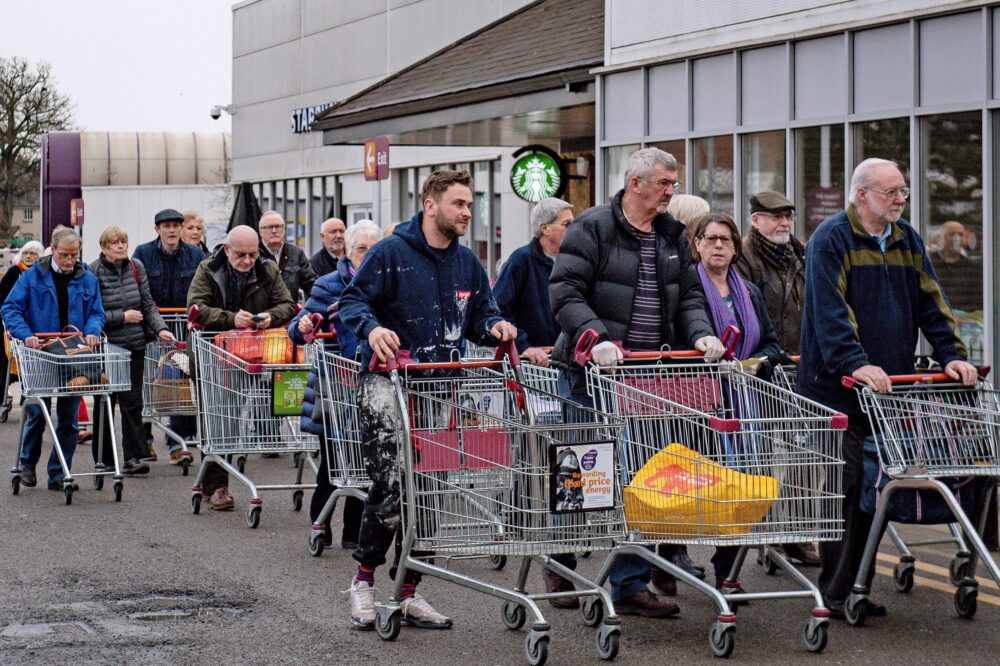Grocery sales rose 7.4% in the 12 weeks to March 21 in a marked slowdown compared with previous months, according to new data from Kantar.
Sales were down 3% in the four weeks to March 21 compared with a year earlier – the first comparison with the first national lockdown that saw supermarket shelves stripped bare at the start of the pandemic in the UK.

Fraser McKevitt of Kantar said: “This time last year, Brits were adjusting to schools and offices closing and making extra trips to the supermarket to fill their cupboards for lockdown.
“To put that into context, shoppers made 117 million fewer trips to the supermarket this month compared with those fraught weeks in March 2020.”
Iceland saw the strongest growth during the period – excluding online-only business Ocado – with a jump in sales of 14.3%, despite still refusing to repay the business rates holiday discount its rivals have handed back.
Aldi, which did repay its business rates, was the worst performer with growth of just 1.5% in the 12-week period.
Mr McKevitt added: “It’s important to look at these numbers within the bigger picture, and two-year growth figures allow us to examine retailer performance amid these moving parts.
“While grocery growth has slowed against 2020, sales are still much higher than the same 12 weeks in 2019 – up by 15.6%.
“As restrictions on dining out continue, the average household spent an extra £134 on take-home groceries compared with this period two years ago.”
Online grocery sales also slowed in the past four weeks, with signs that shoppers are returning to physical stores, with market share dropping from 15.4% in February to 14.5% in March – equating to 13 million additional trips to supermarkets this month.
Confidence has returned particularly among over-65s, with the age group making 143,000 fewer online orders.
Tesco increased its sales by 8.5% and once again gained share to capture 27.1% of the market, up by 0.3 percentage points compared with the same 12 weeks last year.
Asda grew ahead of the market and edged up its market share from 15.0% to 15.1%.
Morrisons’ sales growth of 8.7% meant a share increase of 0.1 percentage points to 10.1%, while sales at Sainsbury’s rose by 7.3% to hold share steady at 15.3%.
Ocado continued its impressive sales surge – up 33.9%, although Lidl and Aldi, which do not offer online deliveries, only managed growth of 2.9% and 1.5% respectively.
Co-op sales rose by 7.1%, with its shoppers visiting an average of 22 times during the 12 weeks and Waitrose sales were up 5.1%.
With the Easter weekend approaching, Kantar also found shoppers had already spent £37 million on hot cross buns and £153 million on Easter eggs by March 21 – £48 million more than at the same stage last year.

















